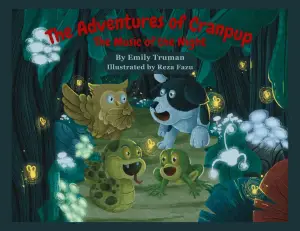I recently finished reading Curious by Philos Fablewright, a book that I found to be an intriguing blend of philosophy, fiction, and humor. As an avid reader who enjoys thought-provoking narratives, I was drawn to this title after seeing its description mention a character grappling with identity and meaning in the face of personal upheaval. The promise of a story that challenges conventional notions of success piqued my interest.
At its core, Curious follows Edward, a man whose life drastically changes when he loses his job and faces the disintegration of his marriage. Staring at the ceiling in an empty apartment, he asks, "Who am I, really?" This central question drives the narrative and encapsulates a universal struggle that many can relate to in today’s fast-paced world.
The positives of this novel are numerous. For one, I found its blend of humor and deep philosophical inquiries to be both engaging and accessible. One reviewer noted that the book “pulls you in from the first page” and describes it as “witty yet profound.” I wholeheartedly agree; Fablewright captures the quirks of modern life in a way that invites laughter while simultaneously provoking reflection. Whether it’s a road trip or a discussion about existential themes, the narrative is interwoven with elements that make you think about life’s absurdities.
Another impressive aspect of the book is the development of Edward’s character. He embarks on a journey of introspection that ultimately challenges societal norms and expectations surrounding success and happiness. It’s refreshing to see a male protagonist confront his vulnerabilities rather than resorting to more typical midlife crisis clichés. As Alex W. aptly described, it’s a “smart, moving exploration of purpose and identity.”
However, the book isn’t without its drawbacks. Some readers have found the narrative style somewhat dense and hard to engage with over longer stretches. Denise Miller pointed out that the book can take time to digest due to its nontraditional structure and the sheer amount of philosophical content integrated within the storyline. I noticed these moments where the pacing seemed to lag, making it easy to put the book down for days at a time. This isn’t a fast read; it’s one that requires reflection and a willingness to engage deeply with its content.
Additionally, while the philosophical digressions are often enriching, I can see how some readers might feel "hit over the head" with all the facts and metaphors. There were instances where the narrative felt crowded, especially when diving into abstract discussions without seamless integration into Edward’s personal journey.
Despite these drawbacks, Curious successfully delivers on its promise of provoking thought and encouraging introspection. The themes resonate well beyond the pages, and I often found myself contemplating the questions raised, such as “Why do we measure success in money, but happiness in moments?” This reflective journaling aspect compelled me to reconsider my own life experiences and beliefs.
In summary, Curious is a compelling, enlightening read that manages to blend humor with heavy philosophical themes. While its structure and pacing might not appeal to everyone, the potential for introspection and laughter makes it a worthwhile endeavor. For those who enjoy narratives that challenge your perceptions and invite you to question your beliefs, this book will undoubtedly linger in your thoughts long after you’ve turned the last page.
I would recommend Curious to anyone interested in a nuanced exploration of the human condition, delivered through a narrative that is as entertaining as it is insightful. Overall, I would rate this book a solid 4 out of 5 stars—primarily for its thoughtful exploration of life’s complexities, while recognizing that its density might not cater to every reader’s taste.








